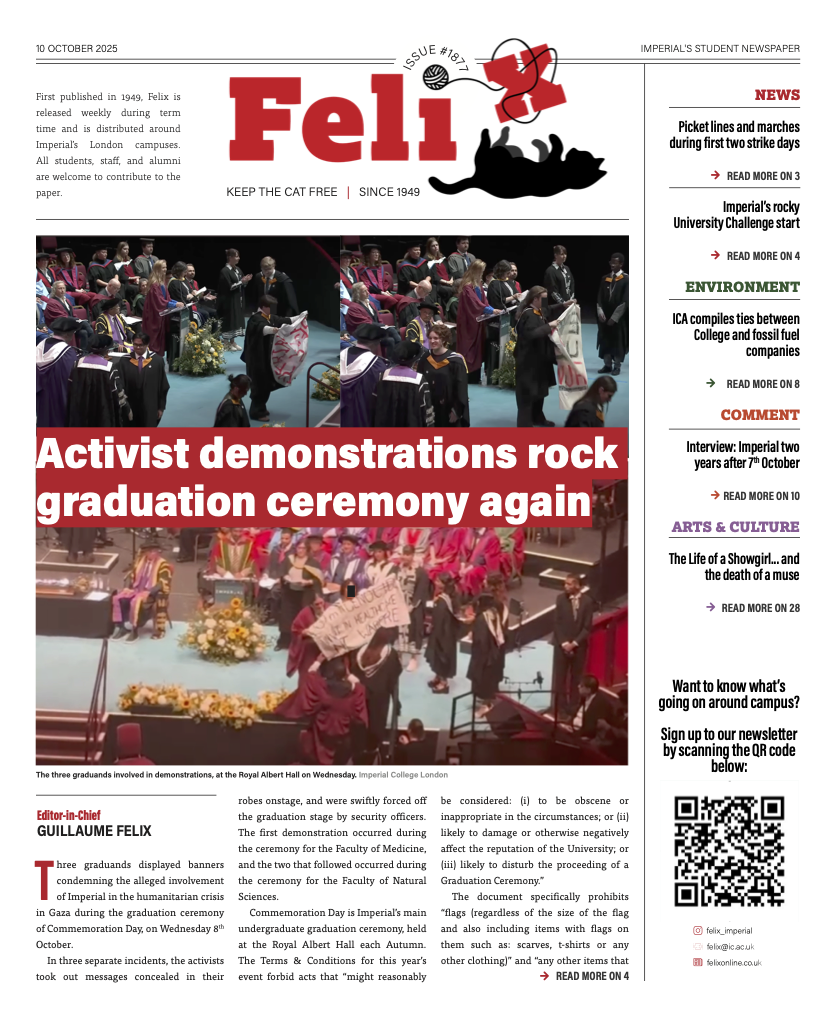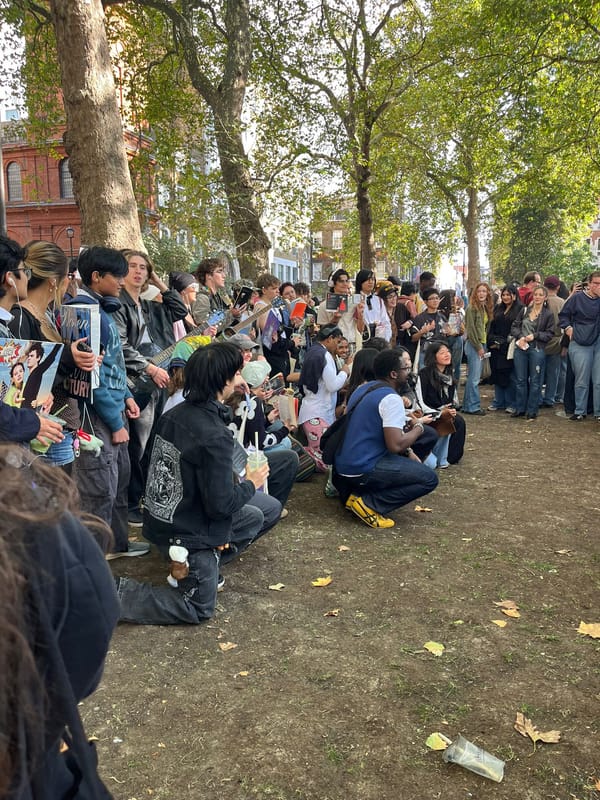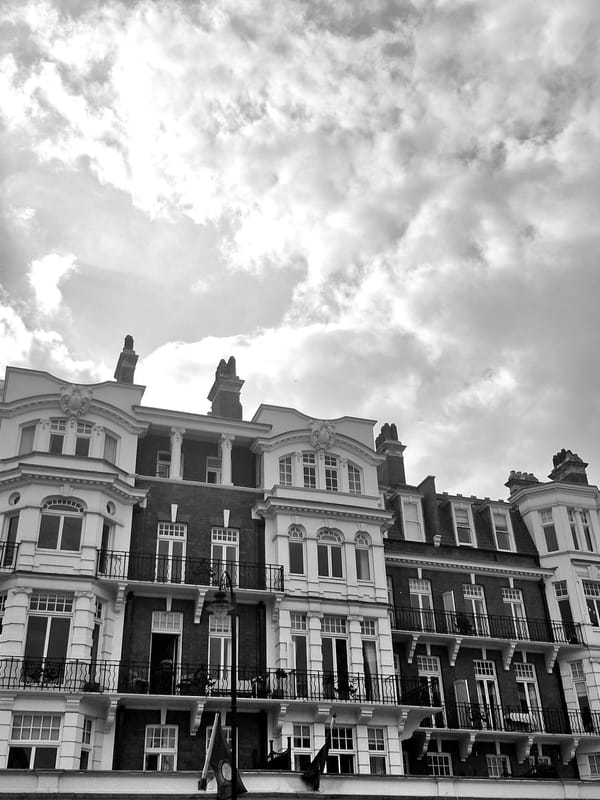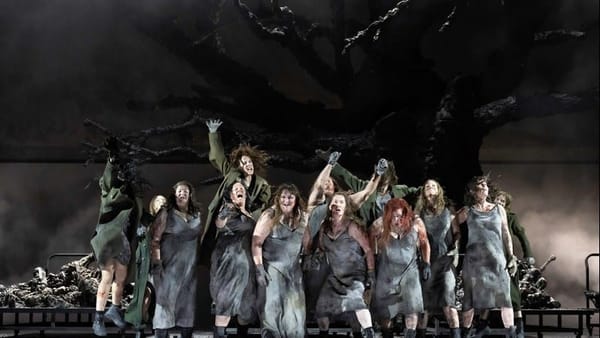The Life of a Showgirl...
...And the death of the muse
When I learned that Taylor Swift, probably my most listened to female artist, was collaborating with Justin Vernon of Bon Iver, one of my most listened to artists overall, and Aaron Dessner, a producer whose work I already admired, I was ecstatic. I still believe Folklore and Evermore are some of her best albums because they are cohesive, and sincere. My care for them does not stem from Swift’s newer reputation for big words, which has become a common talking point among both fans and detractors. That is a misconception I want to clarify before I critique her latest release, The Life of a Showgirl. I do not think that she is the poet she claims to be, only an excellent songwriter.
I once was told by a partner that “the best lyrics are those that sound like thoughts,” and my goodness, they were right. While I appreciate the craft of Folklore and Evermore, and as a fan of The National and Bon Iver’s production, I believe Swift is at her most powerful when she allows simplicity to take centre stage. Her genius lies in the ability to distil emotion into relatable songs. The best Swift lyrics are not weighed down by unnecessarily vocabulary; they sound like something you might actually say when you are vulnerable.
Lines such as: “We can leave the Christmas lights up till January,” “Would it be enough if I could never give you peace,” “You look so cool, running your hands through your hair, absentmindedly making me want you.” These lines are conversational yet effective. Compare them with phrases like “clandestine meetings” or “dwindling mercurial highs,” which exemplify what I think of as “thesaurus.com Taylor.” They are clever, yes, but constructed for ego.
Listening to The Life of a Showgirl, I struggled to find that same intimacy I am used to. Even at her weakest, Swift usually manages to craft a memorable melody or a lyric that lands with precision. Here, I found almost none. There is more soul in “ME!” from Lover, than in much of this record. Showgirl feels hollow, it is pop as brand maintenance. That is not producer Max Martin’s fault – he has proved this with Ariana Grande’s Eternal Sunshine most recently.
Even The Tortured Poets Department, as overlong as it was, contained flashes of authenticity. Those tracks, however overwrought, felt drawn from lived experience and had some impeccable Antonoff production to keep me occupied. Showgirl, by contrast, feels lyrically rushed and underdeveloped, as though it was completed out of obligation of Swift’s own capitalistic “grindset”. The melodies are indistinct, the chord progressions safe, or even sound plagiarised. It is as if no one in her inner circle dared to suggest that a line was clumsy or a hook forgettable.
Ordinarily, I would hesitate to read too much of an artist’s personal life into their work, but Swift invites this. Her music has always been confessional; her audience has been trained to decode it. The truth is that her private life with Joe Alwyn produced her most sincere writing. That is not down to him, of course, but the situation it provided. The quiet anonymity of that relationship seemed to grant her the freedom to explore her real life. In contrast, the work emerging from her relationship with Travis Kelce feels manufactured. For someone who appears so deeply in love, it is striking how often she resorts to physicality to express it. “Wood,” with its references to a “magic wand” and “redwood tree,” for instance. I am completely cool with Swift wanting to write about fame and riches, and not being held back by a partner, but there was no integrity to her attempt.
Despite this, her domestic imagery that runs through the album – visions of “the whole block looking like you” and a “driveway with a basketball hoop” – reads horribly. It is what TikTok users have described as “an homage to the middle-class white wife.” For an artist who built her reputation on specificity and emotional intelligence, this kind of vague suburban aspiration feels alien; I do not truly believe her. Happiness does not necessarily make for dull art, as I have just emphasised, but The Life of a Showgirl does not feel authentic. Swift has nothing to be scared of, nothing to prove, a marriage she can already afford, no Grammy to chase, or any tragic life event. Even the promotional rollout was artificial, with parts of the campaign reportedly produced using generative AI. Showgirl sounds like an algorithm’s interpretation of a Taylor Swift record. Yet, despite its mediocrity, the album is predicted to have the biggest opening week of all time. Swift’s commercial dominance is now so absolute that critical reception seems irrelevant.
I recognise that many who criticise Swift are often misogynists. Women in music are held to impossible standards or punished for their ambition or success. Swift said this herself. My intention is not to diminish her, but to hold her to the standard she herself created. In truth, she and Kanye West share more in common than either would admit: artists of extraordinary talent surrounded by yes-men, whose over-confidence in their geniuses has plagued them. Both have, in different ways, become victims of their own mythology.
I say all of this out of disappointment. I have admired Swift for years, and I know what she is capable of when she writes without pretence (as a former Swiftie). The Life of a Showgirl is her hollowest entry. It feels impersonal and creatively fatigued. It is the work of an artist mistaking productivity for purpose. Perhaps this is the natural consequence of immortality: even Gods eventually run out of things to say.







